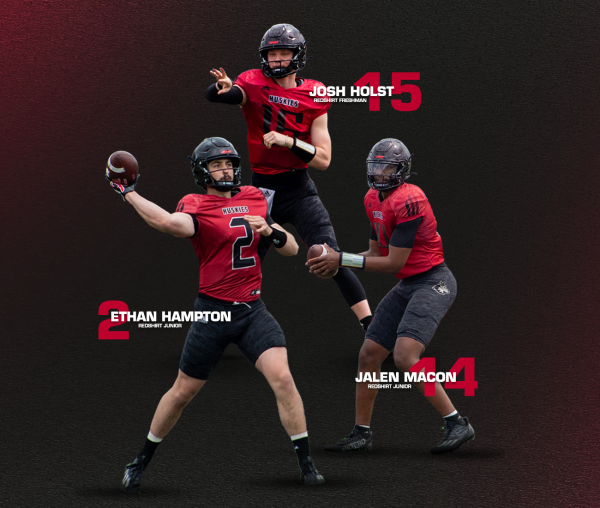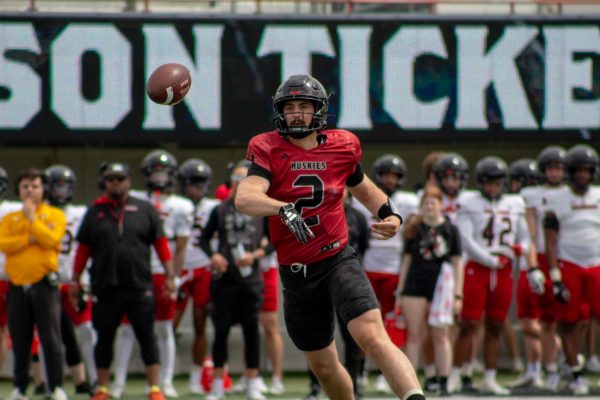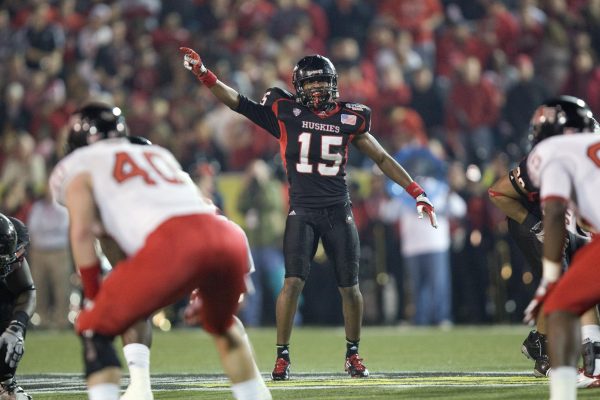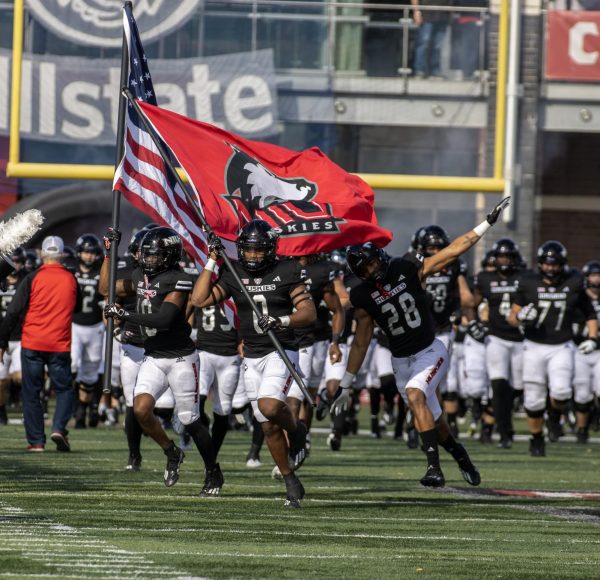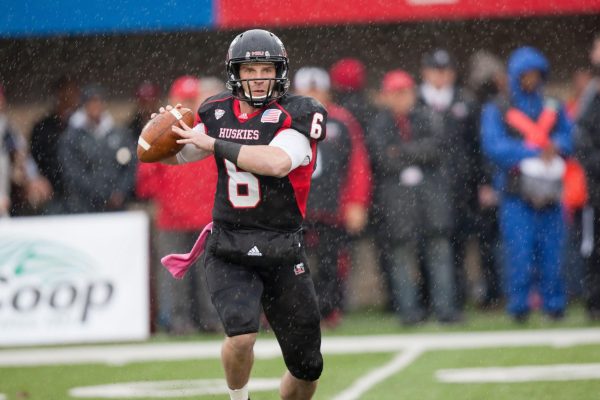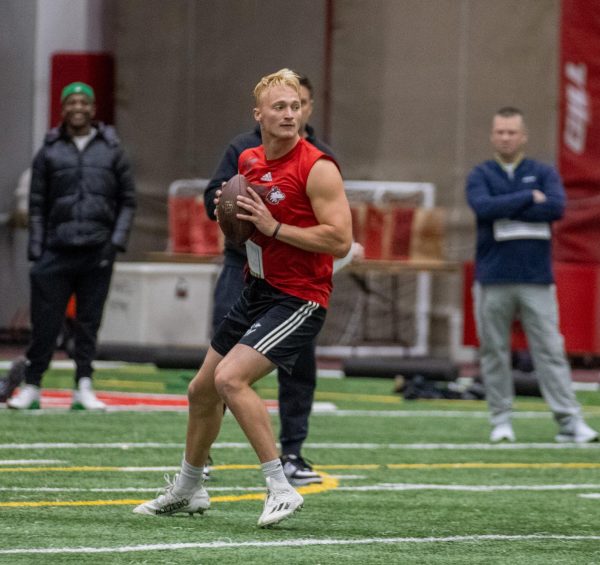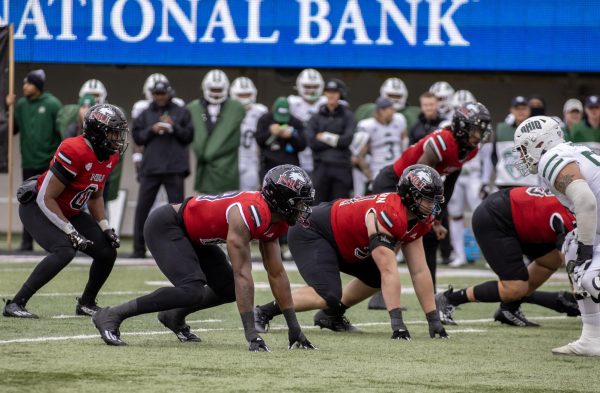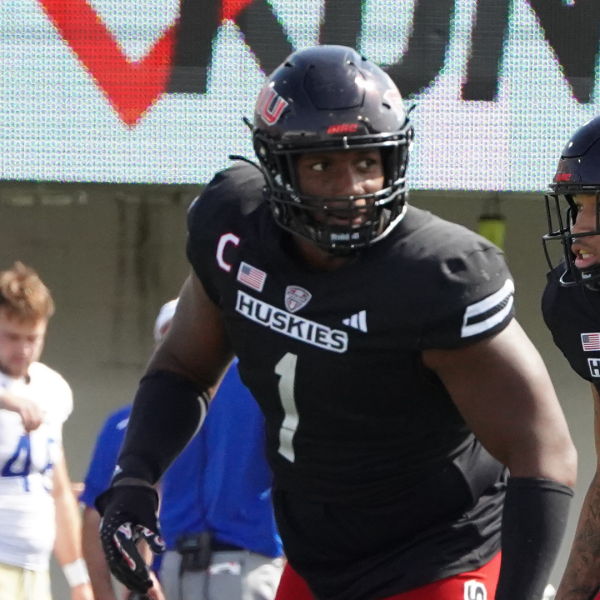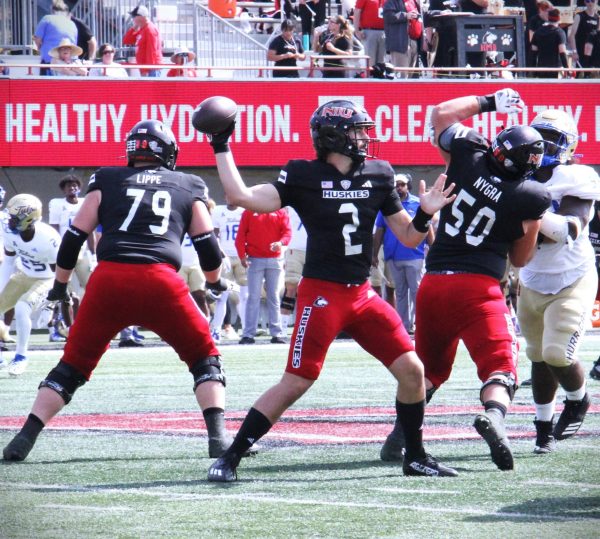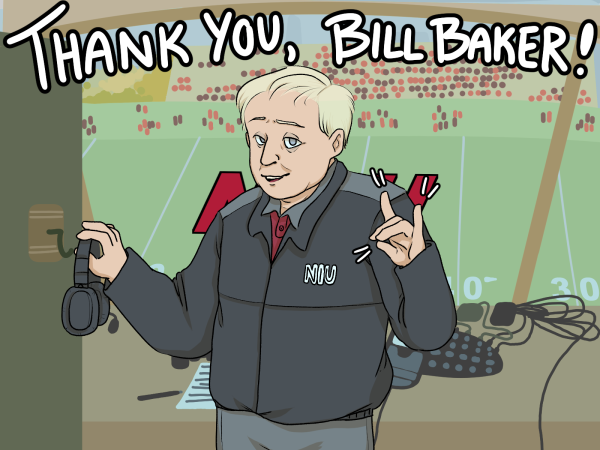Oklahoma turmoil hits Pettibone hard
March 2, 1989
Numerous framed reminders of Jerry Pettibone’s 20-year bond with Oklahoma football cover his office wall in Huskie Stadium.
Black-and-white photos of the 1959 and 1960 Oklahoma teams of which Pettibone was a member hang clearly in the his view as he sits at his desk. The wall is also the home of a snapshot of his college coach, Bud Wilkinson, pictures of the 1974 and 1975 national championship squads which Pettibone helped coach, and a photo of Pettibone posing with his former boss, Sooner coach Barry Switzer.
Each of these momentos is a symbol of the pride Pettibone possesses in his history at Oklahoma. Each is also a symbol of a time when things were more pleasant at the troubled university.
Oklahoma faithful were shocked recently when the NCAA announced the Sooner football program had been placed on three-years probation. However, that was the least of the Sooners’ problems. Stories of drug use, shootings and rape surfaced shortly afterward, desimating the once gleaming program.
Aware of the problems facing Sooner football, Pettibone now senses some of the pain his fellow alumni feel.
“That’s my school,” he said Tuesday. “I was involved with the program at Oklahoma for 20 years, as a player and coach. Anything that happens that is bad down there upsets me and concerns me.”
Pettibone’s involvement with the Oklahoma program ended in 1978, when he left his job as Sooner recruiting coordinator to fill a similar position for Big Eight rival Nebraska. Pettibone is bewildered how the solid program he departed from about a decade ago could have evolved into its present, chaotic form.
“I know that when I was a coach there with coach Switzer, it was demanded that players did things the right way,” Pettibone said. “Now how that transformed into these problems that they’re having now, it’s difficult for me to make that type of observation.”
The fifth-year Huskie coach admitted the Sooner program had its share of problems when he was there, but he added, “They were just normal things that are involved in probably every football program in the country when you get 120 athletes from 18- to 22-years-old who are growing up and maturing. They some times make immature decisions.”
Several articles in last week’s issue of Sports Illustrated chronicled the problems that Oklahoma and other football programs have had with their athletes commiting crimes. Although he has read the SI accounts, Pettibone still thinks the problems are not nationwide.
“I think it’s probably isolated to a few schools. I don’t think that a majority of college coaches purposely go out and recruit a player solely on talent, regardless of the type of people they are. It’s certainly not a trend that’s widespread,” he said.
After talking to some friends who are still at OU, Pettibone said he developed a theory on how the Sooners’ woes began. He said he had heard that each part of the OU program—academics, strength training, etc.—had become so specialized that the coaches began to spend less time with the players.
“We (NIU coaches) have more supervisory involvement with our players and I think that’s important. Maybe that’s one of the things, because Oklahoma has become so sophisticated that the coaches—the ones who should have control of their team—don’t have the time. (The athletes) have to feel like people care about the them. And the only way to show them you care is to spend time with them. And when you’re not able to spend as much time with them as you have been, then maybe that part of it slips away. That’s just a guess, I don’t know for sure.”
Pettibone also said the pressure placed on a college athlete at a major university can, at times, be overwhelming. He said there is pressure on players at universities such as NIU that get less athletic recognition, but he said this pressure is not the same as the kind put on athletes at national powerhouses.
“The difference is that Oklahoma is perenially one of the top 10 teams in the nation,” he said. “They play before 72,000 every Saturday. Three or four times a year they’re going to play on national TV in front of millions of people and they’re competing for a national championship. That’s a lot of pressure.”
The best way to build a solid program without running into problems with the athletes, Pettibone said, is to recruit players who have character and then build discipline in them after they arrive on campus.
“The character level of recruits is a big factor in our decision to recruit,” said Pettibone, who SI has called the best recruiter in the nation. “It’s a big ingredient in a young man’s success in college. His attitude about his goals in life—his character—is going to show up in the classroom, it’s gonna show up on the practice field, it’s going to show up in the game.”
Even though Pettibone has a new home at NIU and is committed to transforming the Huskies into a national football power, he has not forgotten his roots. He would like nothing more than to see Oklahoma rectify its problems and return to its former brilliance.
“It was a big, important part of my life,” said Pettibone, who still wears his O-Club letterman’s ring with pride. “And I want Oklahoma to be what is was for me. There were a lot of people there that cared about me, that helped me, pushed me and made me grow up and mature and helped me realize the kind of things I needed to realize when I was young boy on the way to becoming a man. That’s what a college program ought to be.
“I just want Oklahoma to get back to what it used to be and ought to be.”



